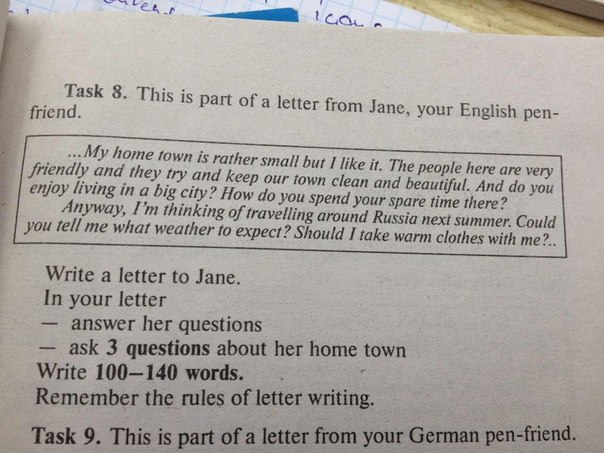Предмет: Английский язык,
автор: Lenochka359
3 вопроса к письму помогите подобрать
Приложения:

Ответы
Автор ответа:
1
1. Is there a theatre in your town?
2. are there beautiful parks in your town?
3. are there any festivals or concerts in your town on holidays?
Похожие вопросы
Предмет: Українська мова,
автор: sarnydso
Предмет: Қазақ тiлi,
автор: гулжанар2
Предмет: Русский язык,
автор: NIKA232491
Предмет: Алгебра,
автор: superman109
Предмет: Химия,
автор: MarkTimofeyev